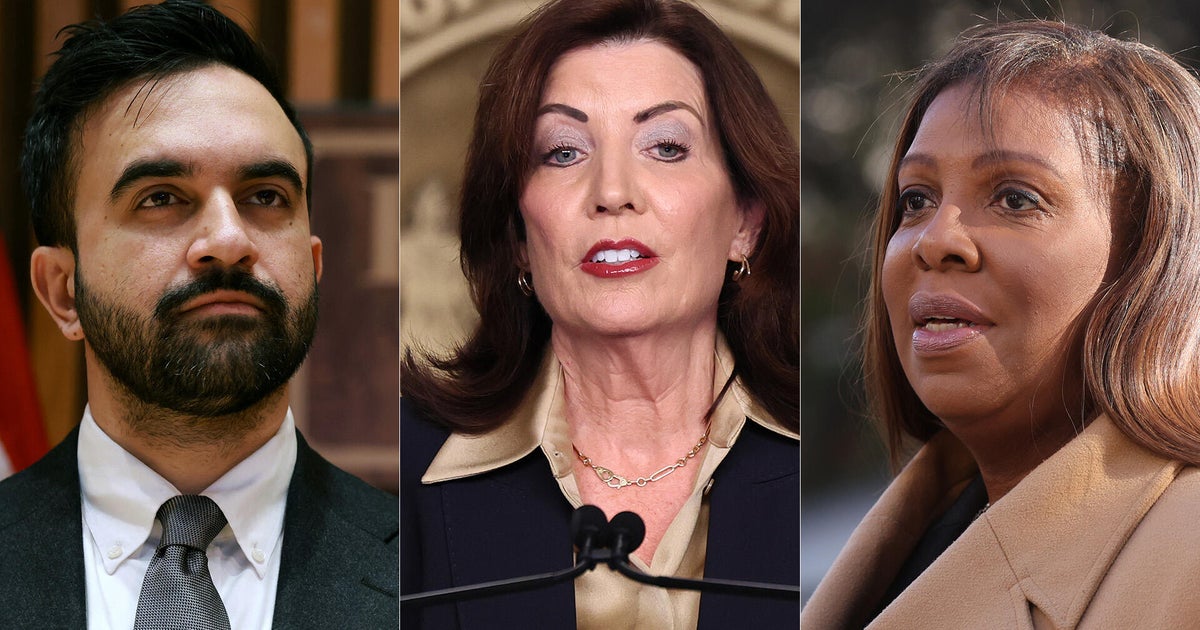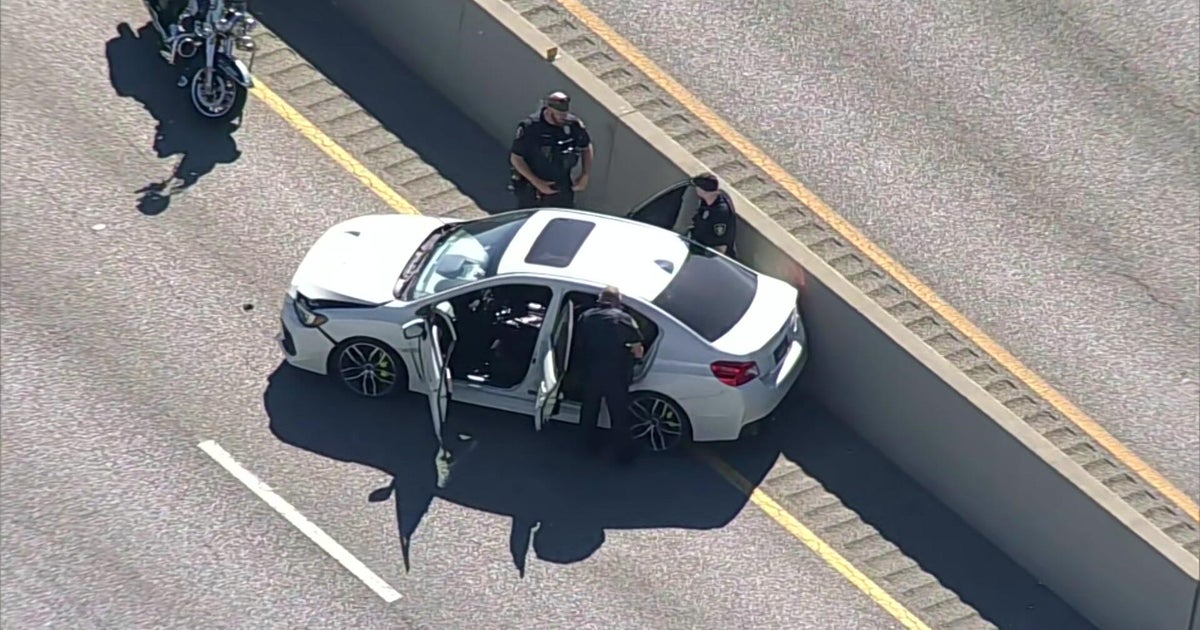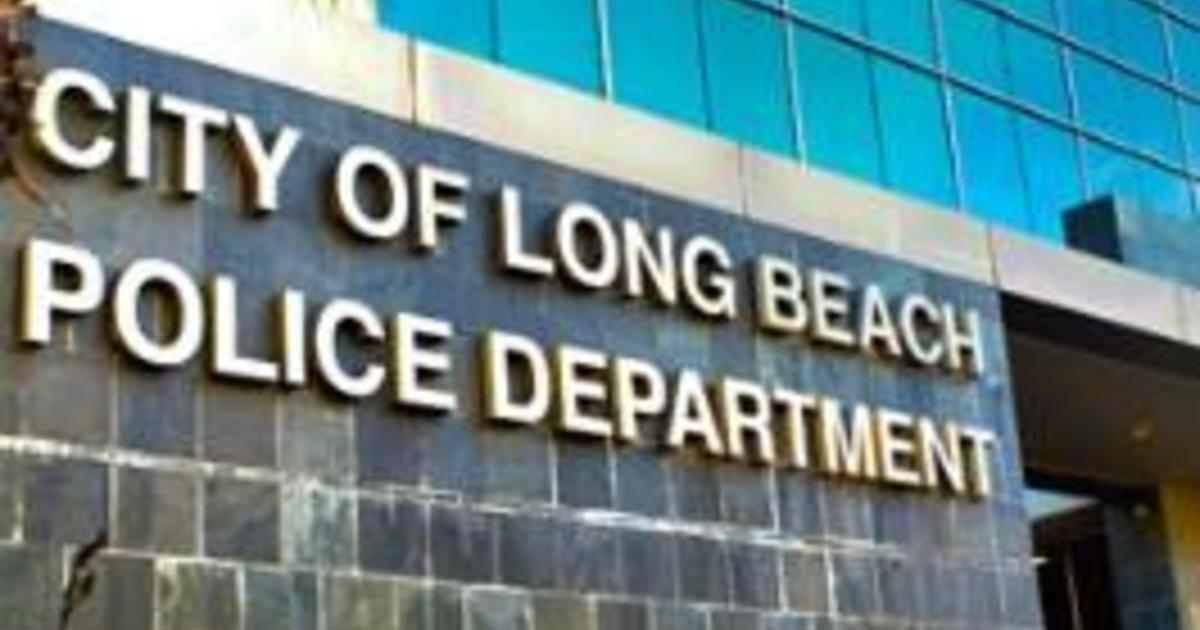NYPD Announces Reforms On Use Of Force Amid Critical Report
NEW YORK (CBSNewYork/AP) -- Amid concerns about excessive force, the NYPD launched a new program Thursday to document and review every physical encounter officers have with the public.
The program will allow the nation's largest police department to track and analyze all instances when force is used, police officials said. The officials also announced new guidelines emphasizing "the duty of all members to protect human life, including people in their custody."
The goal is to create a better understanding of police encounters, WCBS 880's Sean Adams reported. The department will look for trends and try to identify officers with violent tendencies.
The reforms were announced the same day the city's inspector general, Philip Eure, released a report faulting the NYPD for not doing more to discourage the excessive use of force.
The NYPD's top lawyer, Lawrence Byrne, circulated a letter saying the "new policies and procedures address many aspects of the recommendations made by the Office of Inspector General."
Patrick Lynch, president of the Patrolmen's Benevolent Association, was critical of the new policy.
"No amount of new training or additional paperwork will make necessary force that is lawful and properly used by police officers acceptable to those who want to return to the hands-off, reactive policing strategies that sent crime soaring in the past," he said in a statement. "More paperwork coupled with a serious shortage of police officers and the continual second-guessing of their actions is a formula for disaster. It is a call for police officers to disengage themselves from the very proactive policing that brought this city from the brink of disaster in the 1990s."
Eure began examining the NYPD's record on force in the wake of the police chokehold death of Eric Garner in 2014 and a rough takedown and handcuffing of former professional tennis star James Blake after officers mistook him for a criminal suspect in September. Both were videotaped and remain under official review. Neither was part of the analysis.
The report criticized the department for not giving officers clear-cut guidelines on what constitutes excessive force and for often declining to discipline them when they cross the line.
A rulebook for the NYPD "is completely silent on what actions constitute 'force,''' the report said. The rules prohibit excessive force "while offering no clarity on what constitutes 'excessive force,'" it added.
The inspector general described the lack of data as out of "the Dark Ages."
"I would take strong, strong exception to that language," police Commissioner Bill Bratton told reporters, including WCBS 880's Rich Lamb and 1010 WINS' Juliet Papa. "That is an outrageous comment. This department is nothing close to being in the Dark Ages."
An analysis by Eure's office also found that from 2010 through 2014, the NYPD opted not to punish officers in 37 of 104 cases where there was evidence of excessive force.
"In a number of cases, the department has failed to meet its fundamental obligation to police itself," the report said.
There are several examples of officers being in a position to intervene and potentially stop excessive force but choosing not to, the review said.
It cites a video showing an officer punching a cyclist in the face four times on a Queens street after the man refused to produce his identification as another officer stands a few feet away with his thumbs hooked in his belt. It mentions another case in which a man who had locked himself out of his Manhattan apartment building was berated and pushed to the ground by an officer in a dispute over whether the man actually lived there.
Police officers "are not only missing opportunities to de-escalate, but are sometimes actively escalating situations with members of the public,'' the report said.
To that end, part of the NYPD's new policies includes an order for officers to take action if they witness a fellow cop acting inappropriately, CBS2's Tony Aiello reported.
"Officers who are at that scene will be disciplined for their failure to report as well as going forward to intervene," Bratton said.
The NYPD will also offer additional training on how to de-escalate encounters so force is not needed.
(TM and © Copyright 2015 CBS Radio Inc. and its relevant subsidiaries. CBS RADIO and EYE Logo TM and Copyright 2015 CBS Broadcasting Inc. Used under license. All Rights Reserved. This material may not be published, broadcast, rewritten, or redistributed. The Associated Press contributed to this report.)







